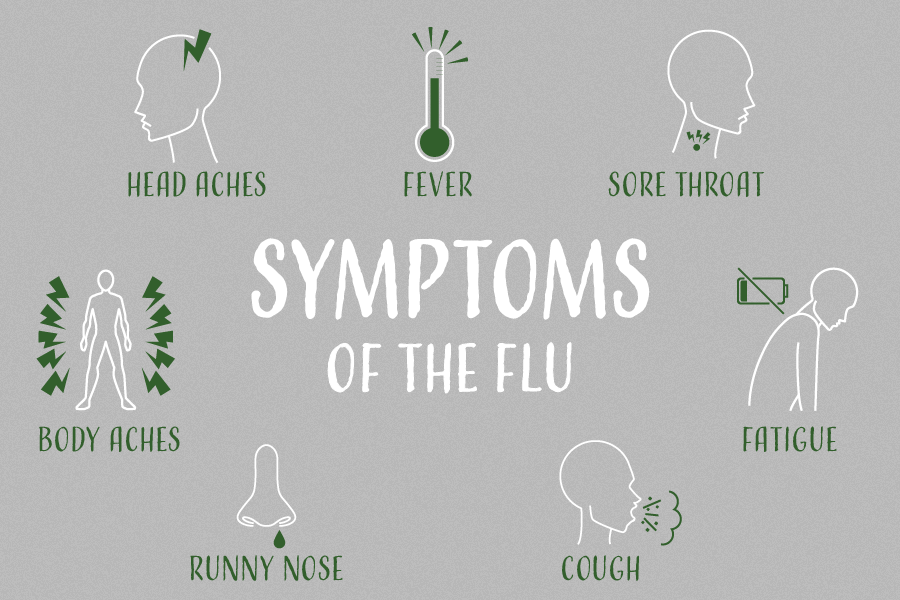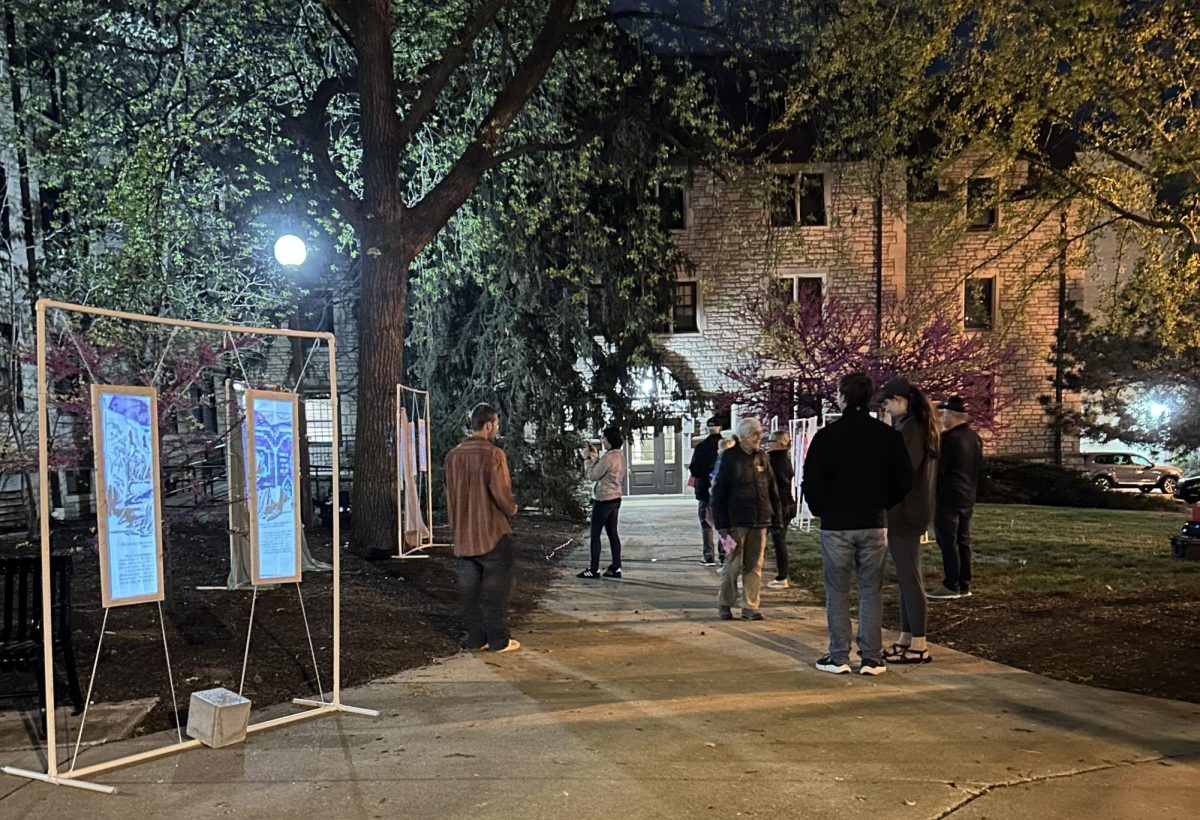Boone County saw a 238% increase in flu cases between Jan. 26 and Feb. 1. MU Student Health and Well-Being resources are available to protect students who experience symptoms
In an article published on Feb. 7, Columbia/Boone County Public Health and Human Services said they recorded 907 flu cases between Jan. 26 and Feb. 1. This was a 238.7% increase from the previous week. Since then, the number of cases has decreased, with 738 cases the week of Feb. 8, and 660 cases the week of Feb. 15.
The Health Department said the actual number of cases may be higher since not everyone who is experiencing symptoms seeks care from a healthcare professional.
The City of Columbia is encouraging residents to take precautions to prevent catching the flu.
For University of Missouri students, this could mean being more cautious in the winter weather and crowded areas. Cold dry winter air provides viruses with the best conditions to spread and crowded areas increase the chance for transmission of viruses from one person to another, according to the World Health Organization. Being more aware of your surroundings and taking precautionary measures can help prevent illness as viruses continue to spread.
According to the Centers for Disease Control and Prevention, the best way to reduce the risk of catching the flu and to prevent more serious complications associated with the flu is to get a vaccine annually. The MU student health fee covers the cost of a flu shot for MU students.
MU Student Health and Well-Being has compiled information for vaccination, symptom tracking and flu prevention. To schedule an appointment with MU Student Health Center for an appointment, students can call the MU Student Health Center at 573-882-7481. First-time visitors need to complete a medical health history form that can be found on its website.
According to the CDC, symptoms of the flu can cause acute to severe illness, including ear infections, pneumonia, organ failure, heart inflammation and worsening chronic illness. Most people with the flu recover in a few days to two weeks. Unlike a cold, flu symptoms will appear abruptly, the CDC states.
Symptoms of the flu can include…
- Fever
- Cough
- Sore throat
- Runny or stuffy nose
- Body and headaches
- Fatigue
Many MU students have recently battled the flu, including first-year Mya Coalson. Coalson experienced symptoms a few weeks ago after she said she was exposed to another student with influenza type A. Coalson had body aches, headaches and congestion.
Coalson went to the MU Student Health Center, however, they did not test her since it was less than 24 hours since she had experienced symptoms and a test would not yield accurate results.
Later that day, Coalson went to urgent care where she tested positive for influenza type A and was prescribed Tamiflu, a prescription drug that can reduce flu symptoms. Within 72 hours, Coalson said she was feeling better.
“I would say urgent care was a better experience for me,” Coalson said. “It took a while for them to get me an appointment and then get me the Tamiflu, maybe like a four- or five-hour process there.”
MU Student Health Center is open 8 a.m. to 5 p.m. on Mondays and Tuesdays; 9 a.m. to 5 p.m. on Wednesdays and 8 a.m. to 5 p.m. on Thursdays and Fridays. You can find more information on appointment scheduling at the Student Health and Well Being website and payments at MU Health Care’s website.
MU Health Care cares for both insured and uninsured patients and information on whether your insurance is accepted is available online at muhealth.org.
Edited by Julianna Meija | jmeija@themaneater.com
Copy edited by Stella Spragg and Natalie Kientzy | nkientzy@themaneater.com
Edited by Annie Goodykoontz | agoodykoontz@themaneater.com













